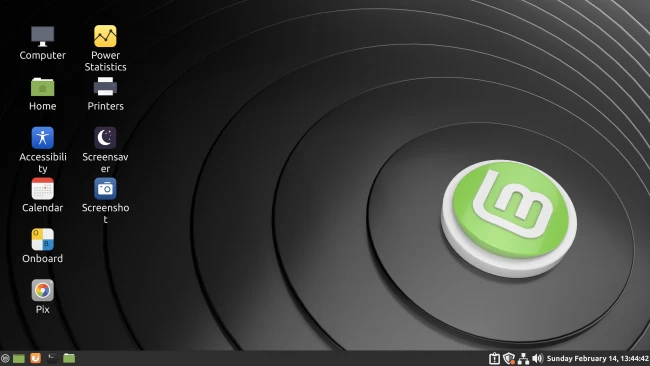List of content you will read in this article:
Developed by Linux Torvalds, Linux was created as an Operating System but now has become an important platform to run servers, desktops, and embedded systems. There are tons of flavors/variations/distributions of the Linux OS. The core or base of the Linux OS is a kernel that performs scheduling of processes, management of devices, handling and configuring the network, managing file systems, etc. It has multiple advantages over other OS such as Windows or macOS. It is now being heavily used in almost every field such as smartphones, supercomputers, smartwatches, etc.
In this guide, we will discuss a few benefits of adopting Linux as an OS over others.
Advantages of Linux over other OS

There are tons of advantages and reasons why you should use Linux if you are a power user. Let’s examine some of the prime motives why you should switch over to Linux immediately.
- Open-Source - Linux is open-source and almost all its distributions are also open-sourced. The entire code is available to anyone and can be customized based on the license agreements. You can easily create a modification in the code, submit new and useful updates, share it with others, etc.
- Secured - OS such as Windows are quite vulnerable to getting hacked. However, it’s not the case with Linux. The main aim of creating Linux was security. The entire structure of Linux such as package management, repositories, etc. makes it more secure than other OS. Along with Windows, it’s essential that you use an Anti-Virus program to keep your machine safe. However, Linux does not require any such software because viruses are made to target as many possible machines as they can. But Linux does not have that much reach to the users as windows do.
- Revive Old Machines - You can use older systems as a firewall, backup file server, router, etc. with the help of several lightweight Linux distros available for such purposes and can run on machines with low-end configurations. For example, you can use Puppy Linux even with a system that has 256 MB of RAM. Hence, we can conclude that Linux has a wide range of usages that can work with low system requirements.
- Dream for Programmers - Linux comes packed with support for almost all popular programming languages and has tons of tools and applications that can be used for development purposes. Linux Command-Line is way superior to the Windows shell and has a plethora of libraries and packages that can be installed. It allows bash scripting and has support for SSH which helps developers to manage servers effectively.
- Software Updates - Mostly, OS like Windows wait for a bug to be introduced and fixed and then release an update for the whole system. So, you need to wait for a long to get your system fixed. However, Linux introduces software updates for even the tiniest of bugs and they mostly do not break your machine or system. The updates are faster and can be easily done in a matter of seconds.
- Customization - You can tweak or customize Linux to whatever extent you want. That’s not possible with Windows or macOS. You can download tons of packages, install beautiful themes and icons, use tools such as conky to present sys-info in a readable format on the Desktop, and tons of other customizations as well. That’s what makes it cool.
- Tons of Distributions - Windows have no variations. They vary only in terms of plans, licenses, or activation period. However, there are several flavors of Linux or distributions of Linux each packed with its own set of features that you can use based on your own requirements. If you want a beginner’s setup, you can use ubuntu. If you want a beautiful setup, go with elementaryOS. In case you need a setup for ethical hacking, switch over to Kali Linux. And the list is never-ending. Some popular distros of Linux are Linux mint, ubuntu, fedora, arch, etc.
- Entirely Free - Linux is an open-source and GNU public license. You can use it for free. You don’t have to waste dollars to acquire a certified version of Linux. For other OS such as windows, you need to spend a lot to buy an activation key for a fully licensed version.
- Community Support - The support for Linux is huge. There are a number of helpful communities that are ready to help you out with any problem you might face with any Linux distribution. You don’t need to pay an expert to get your things fixed. Within seconds of posting, a thread is created in the forums and you will get tons of solutions from experienced programmers around the globe.
- Stable - Linux provides a stable version and hence, you don’t need to reboot it frequently. Linux does not freeze or slow down and you can work without any glitch.
- Reliable - Working with Windows is tough. Every time you install new software, or update the system, or uninstalled a new software, or the system hangs, you need to reboot it to fix it. However, Linux systems are quite reliable and you don’t need to perform rebooting as the system rarely crashes. Linux will give you a smooth environment for a long period of time.
- Privacy - Linux never collects data from its user, unlike other OSs. OS like Microsoft collects data from the user and the way it collects them is quite controversial. With Linux, you don’t even need additional software to preserve your privacy.
- Easy to install - Linux does not require any high-end system to install and even beginners can install it on the oldest of systems. You can even dual boot Linux with Windows. All you need is an ISO image of your favorite Linux distro and a bootable USB stick. That’s it! You are good to go.
- Multi-user - Linux is a multi-user OS which means that multiple users can work on the same Linux system simultaneously and interact with each other. As an admin, you can create users and groups to set access privileges to resources.
- Network Support - It has immense support for network configurations and helps you to set up servers and manage them using SSH very efficiently.
What’s your take?
We certainly believe that if you are fed up with frequent disturbances from Windows and security or privacy issues, you should definitely give Linux a try. It’s worth it. It’s free and open-sourced and has immense support from communities who are willing to help you out without any cost. We guarantee you that if you are coming from Windows to Linux, you will not go back there for sure.
So, what’s your take on this?
